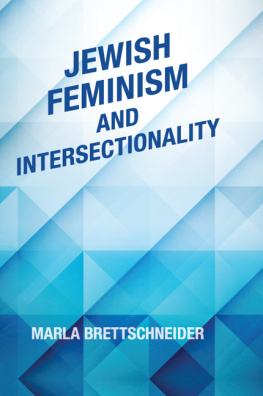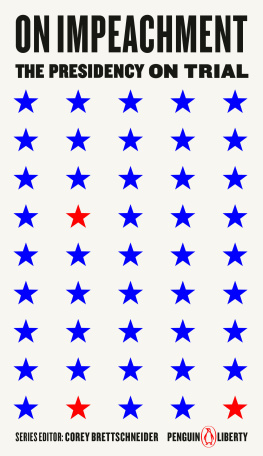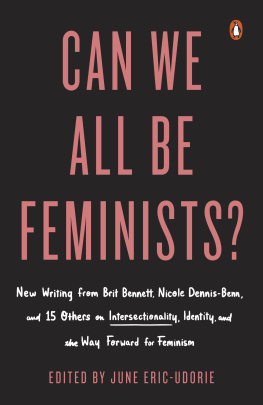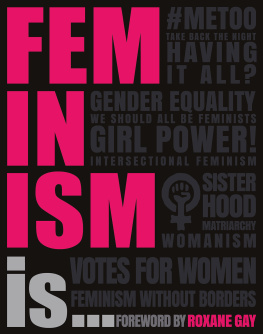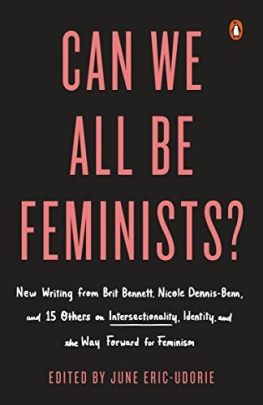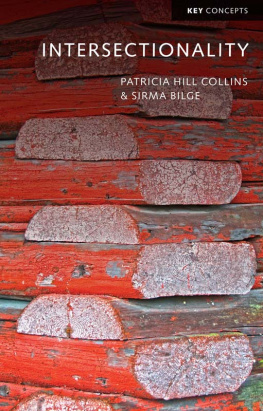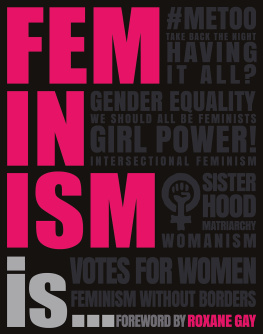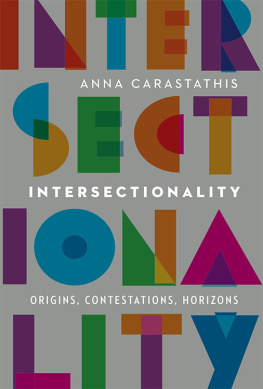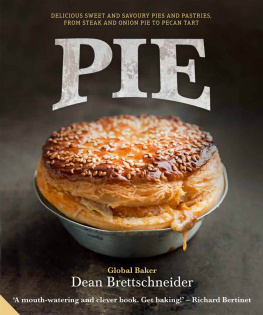Brettschneider - Jewish Feminism and Intersectionality
Here you can read online Brettschneider - Jewish Feminism and Intersectionality full text of the book (entire story) in english for free. Download pdf and epub, get meaning, cover and reviews about this ebook. City: New York;Albany, year: 2016, publisher: State University of New York Press, genre: Home and family. Description of the work, (preface) as well as reviews are available. Best literature library LitArk.com created for fans of good reading and offers a wide selection of genres:
Romance novel
Science fiction
Adventure
Detective
Science
History
Home and family
Prose
Art
Politics
Computer
Non-fiction
Religion
Business
Children
Humor
Choose a favorite category and find really read worthwhile books. Enjoy immersion in the world of imagination, feel the emotions of the characters or learn something new for yourself, make an fascinating discovery.
- Book:Jewish Feminism and Intersectionality
- Author:
- Publisher:State University of New York Press
- Genre:
- Year:2016
- City:New York;Albany
- Rating:4 / 5
- Favourites:Add to favourites
- Your mark:
- 80
- 1
- 2
- 3
- 4
- 5
Jewish Feminism and Intersectionality: summary, description and annotation
We offer to read an annotation, description, summary or preface (depends on what the author of the book "Jewish Feminism and Intersectionality" wrote himself). If you haven't found the necessary information about the book — write in the comments, we will try to find it.
Jewish Feminism and Intersectionality — read online for free the complete book (whole text) full work
Below is the text of the book, divided by pages. System saving the place of the last page read, allows you to conveniently read the book "Jewish Feminism and Intersectionality" online for free, without having to search again every time where you left off. Put a bookmark, and you can go to the page where you finished reading at any time.
Font size:
Interval:
Bookmark:

JEWISH
FEMINISM
AND
INTERSECTIONALITY
SUNY series in Feminist Criticism and Theory
Michelle A. Mass, editor
JEWISH
FEMINISM
AND
INTERSECTIONALITY
MARLA BRETTSCHNEIDER

Published by State University of New York Press, Albany
2016 State University of New York
All rights reserved
Printed in the United States of America
No part of this book may be used or reproduced in any manner whatsoever without written permission. No part of this book may be stored in a retrieval system or transmitted in any form or by any means including electronic, electrostatic, magnetic tape, mechanical, photocopying, recording, or otherwise without the prior permission in writing of the publisher.
For information, contact State University of New York Press, Albany, NY
www.sunypress.edu
Production, Ryan Morris
Marketing, Fran Keneston
Library of Congress Cataloging-in-Publication Data
Names: Brettschneider, Marla, author.
Title: Jewish feminism and intersectionality / Marla Brettschneider.
Description: Albany : State University of New York Press, [2016] | 2016 | Series: SUNY series in feminist criticism and theory | Includes bibliographical references and index.
Identifiers: LCCN 2015018364 | ISBN 9781438460338 (hardcover : alk. paper) | ISBN 9781438460352 (e-book)
Subjects: LCSH: FeminismReligious aspectsJudaism. | Gender identityReligious aspectsJudaism. | RaceReligious aspectsJudaism. | Social conflictReligious aspectsJudaism. | Queer theoryReligious aspectsJudaism. | Feminism. | Gender identity. | Race. | Social conflict. | Queer theory.
Classification: LCC BM729.W6 B7466 2016 | DDC 296.3/8dc23
LC record available at http://lccn.loc.gov/2015018364
10 9 8 7 6 5 4 3 2 1
This book is dedicated to Paris and to Toni,
And in loving memory of my mother, Phyllis Brettschneider
Contents
Acknowledgments
Every project, certainly one as large as a book, is a communal endeavor. In addition to the many specific appreciations offered in the coming pages, this book would not have been possible without the support of Burt Feintuch and the University of New Hampshire Center for the Humanities, the College of Liberal Arts Deans Office, the Department of Political Science, and the Womens Studies Program. Marcie Anderson, Michael Cole, and Dee-Ann Dumas have provided invaluable assistance; Faina Bukher has been an outstanding colleague. Also at UNH I would like specifically to thank Jessica Compton, Jessica Rosenthal, Richard Barney, Chelsea Moyer, Tobi Afolayan, Cassie Travers, Rachel Draper, Alden Reed, and the Womens Studies Program assistants team: Emily Sorey-Backus, Emerson Dorion, Stephanie Kuhn, and Cecilia Martins as well as Abigail Carpenter-Winch from Hampshire College.
I am grateful for the access to the Jewish Museums National Jewish Archive of Broadcasting, New York City, and the opportunity to work with Andy Ingall and Joanne Jacobson. Even during a rough time in the midst of a recession, the HadassahBrandeis Institute was able to fund a portion of my time during sabbatical for this work. Bnot Esh continues to sustain me in many ways, as well as the Jewish Multiracial Network, Jews for Racial and Economic Justice (JFREJ), Nehirim, the National Havurah Institute, as well as the Jewish Queer Think Tank for the seven years that we worked together. I also acknowledge the International Society for the Study of African Jewry, with which I connected during the process of working on this book and which has greatly contributed to developments in my work. The participants in the Newton, MA Jewish feminist text study group that Ronnie Levin so graciously initiated and keeps afloat have been a great source of connection. Daughters of Abraham and Kids4Peace have been wonderful communities in New England for supporting my work on diversity. Jen Chau, and all of Swirls work with, and on behalf of, mixed-race individuals and families have been important for me and this work.
Much gratitude goes to Rebecca Alpert, Lori Marso, Patricia Moynagh, Sarra Lev, Randi Dubnick, and the many anonymous reviewers who have given generously of their time and expertise to help make this work as strong as it can be. It is incredible Jewish feminists such as Martha Ackelsberg and Melanie Kaye/Kantrowitz who have cut paths in so many ways for activist scholars like me to do our work.
I could not have made it through without the sensitivity and brilliance of Suzy Lowinger (may her memory be a blessing) and Lanie Resnick. As always, I thank my sisters, Beth and Nina, and my father, Solomon, as well as Dawn Rose. I write in loving memory of my mother Phyllis Brettschneider. I still cannot say how parents manage to research and write while raising kids, but I am eternally blessed by Pariss and Tonis presence in my life. (I showed this line to Paris as I was working in our kitchen. In response she upped the volume on her pop music while emptying the dishwasher. I think she got the irony.)
Of course, any errors are my own alone.

The following are adapted and reprinted with permission:
Portions of : 2006. To Race, to Class, to Queer: Jewish Contributions to Feminist Theory. In Bat-Ami Bar On and Lisa Tessman, eds. Jewish Locations: Traversing Racialized Landscapes. Rowman & Littlefield/Altimira Press.
Portions of .
Portions of : 2008: Jewish Feminism, Sexuality, and a Sexual Justice Agenda. Jewish Feminism. Ed. Elyse Goldstein. Woodstock, VT: Jewish Lights.
V.
Lowell, MA
2015
Introduction
Jewish Feminism and Intersectionality is intended to offer readers exposure to how one might include Jews and Jewish matters of interest into the field of intersectionality studies. This book is equally designed to demonstrate a range of ways that Jewish feminist work can operate with the best of what intersectionality studies has to offer. With the completion of the main portion of the manuscript in the summer of 2014, this work felt more relevant than ever.
There are always horrible things happening around the world, but the summer of 2014 seemed more formidable than many. In late spring, I was planning a research trip to Nigeria for another work on the Jewish phenomenon in Sub-Saharan Africa, when hundreds of girls, mostly ranging from sixteen to eighteen years old, were abducted from their school in Chibok Nigeria by Boko Haram. Boko Haram (meaning Western education is forbidden) is an Islamic fundamentalist group considered to have sold the teens into forced marriages or other forms of sexual slavery. Hoping to travel with my own teen girls, I was in the elite position of being able to change our travel plansa distinct privilege of agency regarding trying to keep my own children safe, to which too few people across the globe have access.
In midsummer, Israel and Gaza began bombing each other. Following the kidnapping and killing of three Israeli teen boys, a revenge killing of a Palestinian teen, and a major crackdown in the Occupied Territories, the events turned catastrophic. Israelis were for the most part successfully protected from the bombs coming from Gaza with the Iron Dome technology that prevented most of the bombs from actually falling within Israel. Psychologically, however, terrors ran high as citizens from all walks of life were running to bomb shelters with a frequency this generation had not yet experienced, and the military was activated at high levels. The humanitarian fiasco in Gaza grew to previously unimaginable proportions. Facing Israels military attack from air and on land, over two thousand people were killed, including mostly civilians and over five hundred children, and many were sent into exile, creating yet a new refugee emergency. Over fifteen thousand homes in Gaza were destroyed, leaving approximately one-third of the population homeless.
Font size:
Interval:
Bookmark:
Similar books «Jewish Feminism and Intersectionality»
Look at similar books to Jewish Feminism and Intersectionality. We have selected literature similar in name and meaning in the hope of providing readers with more options to find new, interesting, not yet read works.
Discussion, reviews of the book Jewish Feminism and Intersectionality and just readers' own opinions. Leave your comments, write what you think about the work, its meaning or the main characters. Specify what exactly you liked and what you didn't like, and why you think so.

